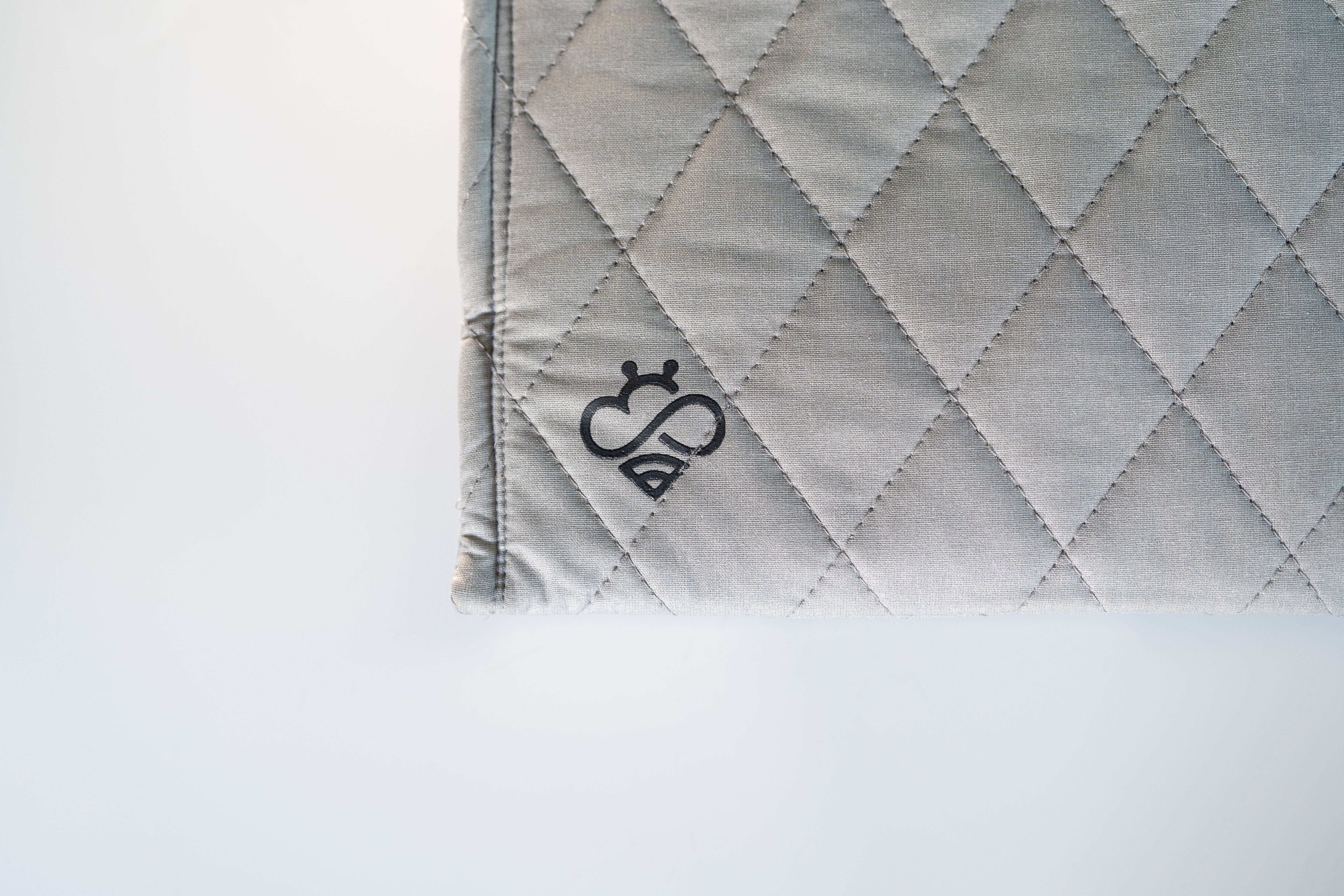How do you cope with stress? Do you fall prey to stress-snack cycles? Stress-three-glasses-of-wine cycles? Do you find yourself stuck in stress-pimple cycles or stress-migraine cycles? What about stress-argue-with-your-significant-other-over-mundane-things cycles?
Yeah, we aren’t saying it’s necessarily pretty, but there are plenty of ways to deal with stress — and if you don’t find a healthy coping mechanism (more on that, shortly, because this is where Hapbee really shines), your body will find less-than-pleasant ways to deal with it for you.
Shocking Sleep-Stress Statistics
And what about sleep? Yes, for many, stress negatively impacts sleep. Take a look at these notable stats, found in an American Psychological Association study:
- 42 percent of adults report that their sleep quality is fair or poor.
- 43 percent report that stress has caused them to lie awake at night in the past month.
- 45 percent feel even more stressed if they don’t get enough sleep.
- Adults with lower reported stress levels report sleeping more hours a night than adults with higher reported stress levels (7.1 hours vs. 6.2 hours).
- Adults with high stress are more likely to say they are not getting enough sleep because their minds race.
Furthermore, the study revealed that adults who sleep fewer than eight hours a night are more likely to report symptoms of stress in the past month, such as:
- feeling irritable or angry (45 percent vs. 32 percent of adults),
- feeling overwhelmed (40 percent vs. 27 percent),
- lacking interest, motivation or energy (42 percent vs. 30 percent),
- losing patience or yelling at their children (52 percent vs. 27 percent),
- losing patience or yelling at their spouse or partner (50 percent vs. 36 percent), and
- skipping exercise (41 percent vs. 33 percent).
So it shouldn’t come as a surprise that there’s an actual medical term for this phenomenon: the sleep-stress cycle.
What is the Sleep-Stress Cycle?
According to Sleep.org, stress and sleep have a reciprocal relationship whereby high levels of stress can contribute to trouble sleeping, and poor-quality or insufficient sleep. Conversely, chronic stress, the kind you experience long-term, also affects your sleep-wake cycle, or the internal clock that tells your body when it’s time to be alert and when it’s time to rest.
So if you’ve ever felt stuck in a loop of being so stressed that all you want to do is sleep, but you can’t sleep because you’re so stressed out, you know just how frustrating and how real the sleep-stress cycle is.
The main hormone to consider when exploring the sleep-stress cycle is cortisol, the stress hormone. In a perfect world, cortisol decreases at night, when you’re ready for sleep — but people with insomnia often have higher levels in the evening.
The ways in which stress can play out are well-documented, including the reduction of deep sleep and rapid eye movement (REM) sleep, increased muscle tension that makes it hard to relax, an elevated heart rate and rapid breathing, and issues with the digestive system that make it uncomfortable to rest.
How Hapbee Helps You Cope with Stress So You Can Sleep Soundly
As you can see, finding ways to help manage your chronic stress is crucial to you overall health and the key to getting a great night’s sleep. This is why so many people choose to lean on chemical substances — like melatonin, sleeping pills, alcohol or cannabis/CBD — to get their ZZZs.
But one problem with these options is that they can cause dependency issues, meaning you’ll need to take them regularly, and often in increasing dosages, to feel the same effects. Another concern is unwanted side effects, which could be anything from weight gain and nightmares to depression and heart palpitations. Yet another problem with these substances is that they usually only work for a couple hours at best, leaving you wide awake in the middle of the night and unable to fall back asleep without taking more. Finally, some of these will even leave you groggy in the morning, which means you won’t wake up feeling refreshed and recharged — and that will also impact your stress response.
Hapbee was specifically designed to replace all these aforementioned substances in a chemical-free and safe way. How? The device is a wearable technology that uses a Signal — a recording of a compound or molecule’s unique magnetic frequency, like caffeine or melatonin — to emit these signals to your body’s receptors. In turn, your body feels the positive impact (such as relaxation, calm and sleepiness) without the side effects or dependency.
These Signals include:
- Calm
- Relax
- Deep Sleep
- Bedtime
Hapbee also has multiple Blends (a combination of different signals) geared toward relaxation and sleep, including:
- Winter’s Nap: a blend of melatonin and CBD
- Wind Down: a blend of melatonin and adenosine
- Bedtime: a blend of adenosine
- Deep Sleep: a blend of melatonin
- Power Nap: a blend of adenosine and CBD
- Time to Lounge: a blend of CBD



